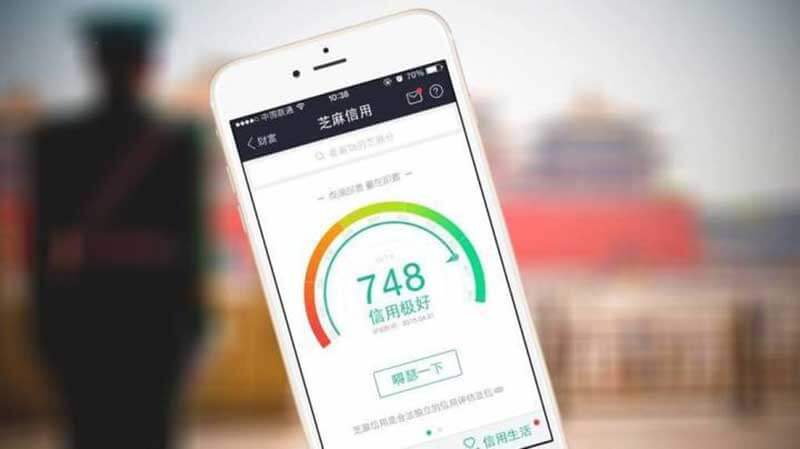- It all began with Alipay, a mobile payment system that collects massive data
- Then came Sesame Credit, an ‘open sesame’ that unlocks your data and reveals your life
- Now, the Chinese government wants to expand ‘social credit’, creating an Orwellian nightmare
If you live in the US, Canada, or the UK, you’re probably familiar with credit scoring agencies like Equifax and Experian. Essentially, these agencies track your financial behaviour, assess your debt repayment, and judge your future credit-worthiness. The higher your score, the better your credit with everyone from banks to car dealers. This impacts whether you can get a loan for a house or car or increase the credit limit on your Visa, and it affects the interest rates you’re offered on loans.
But in the age of big data and soft authoritarianism, that’s not enough for China. As an outgrowth of ‘social credit’ tracking by the Ant Financial Services Group (AFSG), the Chinese government wants to gather behavioural data about its nearly 1.4 billion citizens, rewarding or punishing them for what they do (or don’t do). You’d be right to think this sounds like a recent Black Mirror episode, “Nosedive”, and the implications of this proposal are frightening.
It all began with Alipay, a mobile payment system that collects massive data
This social experiment began in the private sector. Alipay, owned by AFSG and positioned as a subsidiary of the Chinese titan Alibaba, offers its users a convenient mobile phone payment system. Accepted in a number of countries, Alipay allows people to pay bills, buy groceries, shop for clothes, and buy meals with a simple swipe. Its users can also hail an Uber or book an apartment with Airbnb. Behind this ease is an entire digital network devoted to data gathering. As Mara Hvistendahl writes for Wired, “It was as if Amazon had swallowed eBay, Apple News, Groupon, American Express, Citibank, and YouTube — and could siphon up data from all of them.”

As part of its service, Alipay offers its users Zhima Credit, or Sesame Credit, a bit of Chinese-language wordplay that connects Zhima, or ‘sesame’, to its parent company Alibaba and the ‘open sesame!’ of “Ali Baba and the 40 Thieves”. By opting in to this service, users join a social credit network that includes the kinds of data that Experian and Equifax use, but that also goes much, much deeper into their lives. It’s the magic that gives ‘soft authoritarianism’ a digital edge.
Then came Sesame Credit, an ‘open sesame’ that unlocks your data and reveals your life
Sesame Credit cares about a lot more than your debt repayment. To arrive at your personal score, ranging between 350 and 950, it also analyses your purchases, your education, and your friends’ and associates’ scores. The higher your score, the better the perks. Conversely, a low score can lock your ability to travel, limit your hotel options, and force pricey down-payments for basic services. It’s good to be good – right?

But critics note that the algorithm is the classic black box; precisely what metrics it uses to judge your social value aren’t clear. What’s painfully obvious, though, is that Sesame Credit is a wide-ranging tool for social engineering. For instance, hang out with too many people with bad social credit, and your credit suffers, too. That’s already changing social patterns. And that power to softly but firmly induce change has attracted China’s increasingly authoritarian government to give social credit a try.
The video below explains how Sesame Credit works:
Now, the Chinese government wants to expand social credit, creating an Orwellian nightmare
As Hvistendahl reports, “In 2014, the State Council, China’s governing cabinet, publicly called for the establishment of a nationwide tracking system to rate the reputations of individuals, businesses, and even government officials. The aim is for every Chinese citizen to be trailed by a file compiling data from public and private sources by 2020, and for those files to be searchable by fingerprints and other biometric characteristics. The State Council calls it a ‘credit system that covers the whole society’.” The plan, it seems, is to leverage the power of something like Alipay – perhaps even Alipay itself – to track the behaviour of the Chinese public, punishing and rewarding each citizen for his or her actions. Do what the government likes and watch your social credit skyrocket. Dissent, disagree, or spread rumours on social media, and see nearly immediate consequences for your freedom.
That may sound like hyperbola, but it’s not. According to official documents recovered by Business Insider Nederland, among other things, those with low social credit “won’t be considered for public office. You’ll lose access to social security and welfare. You’ll be frisked more thoroughly when passing through Chinese customs. You’ll be excluded from senior level positions in the food and drug sector. You won’t get a bed in overnight trains. You’ll be shut out of higher-starred hotels and restaurants and rejected by travel agents. Your children won’t be allowed into more expensive private schools.” The idea is a sweeping form of social control. As Rachel Botsman reveals for Wired UK, official Chinese government documents proclaim that “the social credit system will ‘allow the trustworthy to roam everywhere under heaven while making it hard for the discredited to take a single step’”.
If that sounds like something from an Orwellian nightmare, that’s because it is. Samantha Hoffman, a social credit researcher with the International Institute for Strategic Studies in London, is just one of many critics to label this system Orwellian, a term of opprobrium borrowed from the name of the author of the chilling classic 1984. With mobile-generated big data to keep track of each citizen, misbehaviour will have real consequences. Society will become a prison, an expansive jail without walls that separates the trustworthy from the discredited, sorting citizens into two groups: those of whom the government approves, and those whom it will correct through daily punishment.
Is this the future of Chinese society? We hope not, and we’ll be watching with the world to see how this plan unfolds.
Share via:


